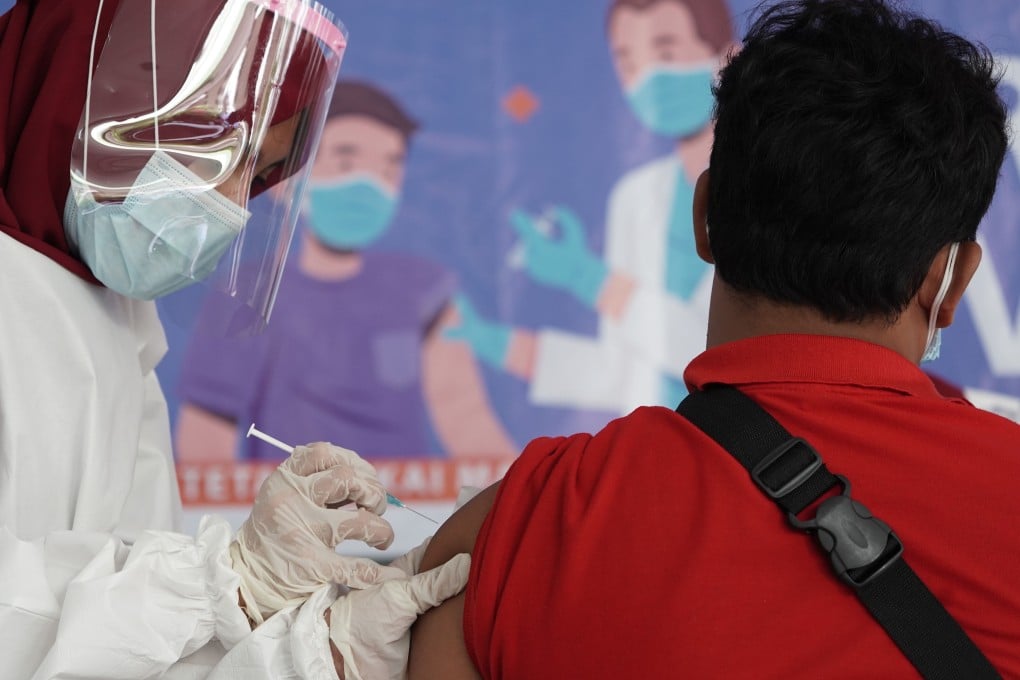Coronavirus: Indonesia can punish those who refuse vaccine; Singapore opens business travel bubble
- Indonesia has so far administered more than 1.7 million shots, but can stop or delay social assistance programmes to those who will not get vaccinated
- Meanwhile, Japan expanded its vaccination programme beyond Tokyo, and India will require tests from those travelling from countries with new variants

The government can punish those who refuse the vaccine by stopping or delaying social assistance programmes and administrative services as well as impose fines, according to a revised presidential rule. The actual form of the sanctions are left to local governments to decide.
Making the Covid-19 vaccine compulsory is an unusual move amid widespread hesitance toward the shots that were rushed in its development.
A survey last September found that about 65 per cent of Indonesians would want to get the shots, while the rest were concerned about the cost, health risks and whether the vaccine would be halal. The government has since made the vaccine free of charge.
Indonesia has administered more than 1.7 million shots in a programme that started with President Joko Widodo himself receiving the first dose, a bid to bolster public confidence in the Sinovac Biotech vaccine. That is a long way from the more than 180 million people that the government seeks to inoculate by the end of the year.
The country has also signed deals with other manufacturers including AstraZeneca and Novavax, though those shots haven’t been shipped.